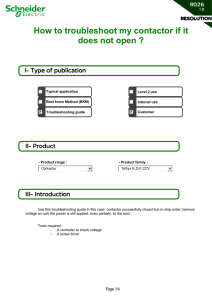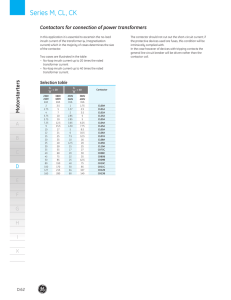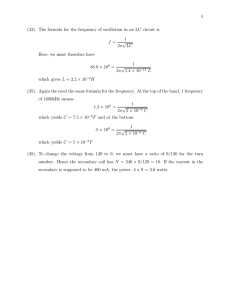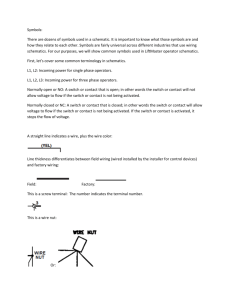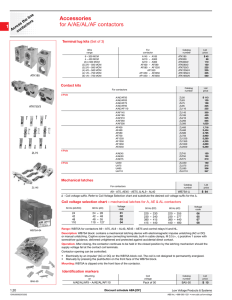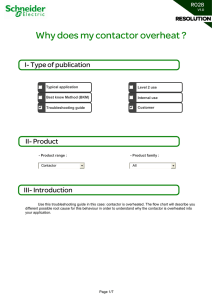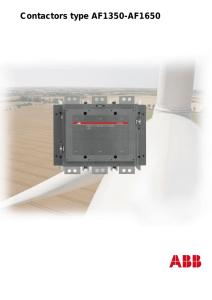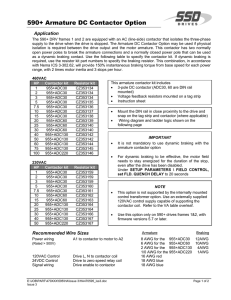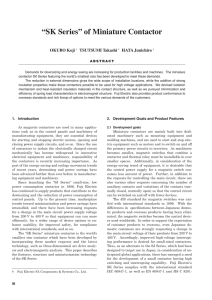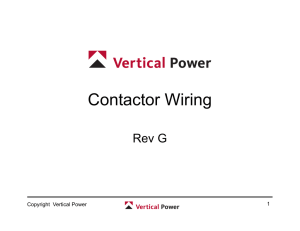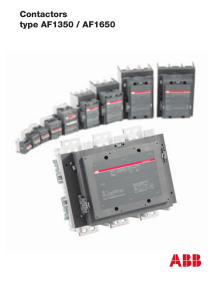R016 How to trouble Shoot my contactor if it
advertisement
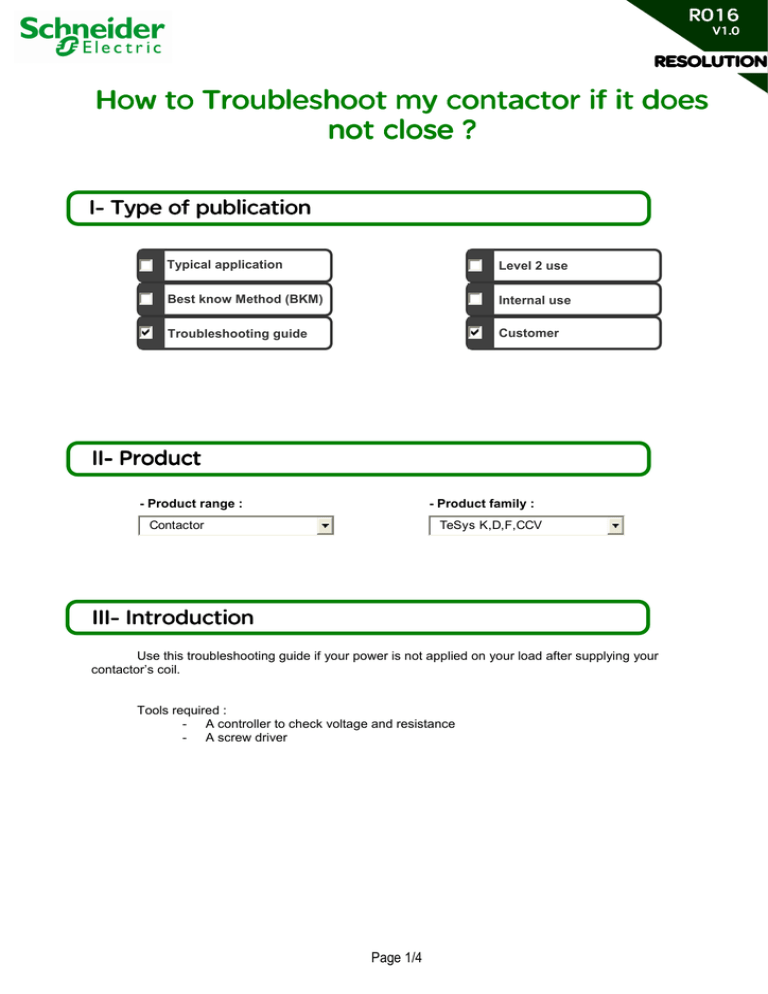
R 0 16 V1.0 How to Troubleshoot roubleshoot my contactor if it does not close ? I- Type of publication Typical application Level 2 use Best know Method (BKM) Internal use Troubleshooting guide Customer IIII- Product - Product range : - Product family : Contactor TeSys K,D,F,CCV IIIIII- Introduction Use this troubleshooting guide if your power is not applied on your load after supplying your contactor’s coil. Tools required : - A controller to check voltage and resistance - A screw driver Page 1/4 R 0 16 V1.0 IVIV- Description MY CONTACTOR DOES NOT CLOSE Does the power supply apply to the coil ? (1) NO FIND THE ORIGIN OF THE FAILURE NO CHECK DROPS OF VOLTAGE (2) AND POWER SUPPLY USED (3) NO WIRED POSITIVE CABLE ON “A1” WIRED NEGATIVE CABLE ON “A2” YES CHECK CONTINUITY (4) YES Do you use coil at nominal voltage ? YES Do you respect polarity on the DC coils ? YES Does the coil fail ? NO Is the contactor in vertical position ? NO CHECK POSITION (5) YES CONTACT TECHNICAL SUPPORT Page 2/4 R 0 16 V1.0 (1) The power supply applies to the Coil Check coil voltage: c) Measure: a) Look after your coil range: When contactor is driven the coils voltage should be different than “0 Volts” 24VDC b) Put your probe on coil terminal A1 A2: Note: you can make the same job for a TeSysF but the multi meter is not connected on the same points: (2) Drop of voltage On power up sequence check if the voltage is stable. We can have different root cause for this issue: a) You drive simultaneously more than one contactor and your power supply is not correctly sized -see point (3)b) You have a too long distance between supply and coil terminal. You will have to verify that your cable is correctly sized regarding the distance between the power supply and the contactor. (3) Power supply used Your power supply should be able to support the sums of all contactors inrush current. Please, for the inrush current level of each individual contactor, you will have to refer to the technical data for each contactor you drive Page 3/4 R 0 16 V1.0 (4) Continuity For this point you will need to use a multi-meter to verify coils resistance. This resistance value should between some Ohms to kOhms this depends of coils voltage and contactor models a) If you found a value close less than 0.1 ohms you are facing a coil short circuit: b) If you have an infinite value you are facing an open coils circuit For both situations, you have to replace coil or the full contactor if you have no other possibility. (5) Contactor Position Page 4/4
